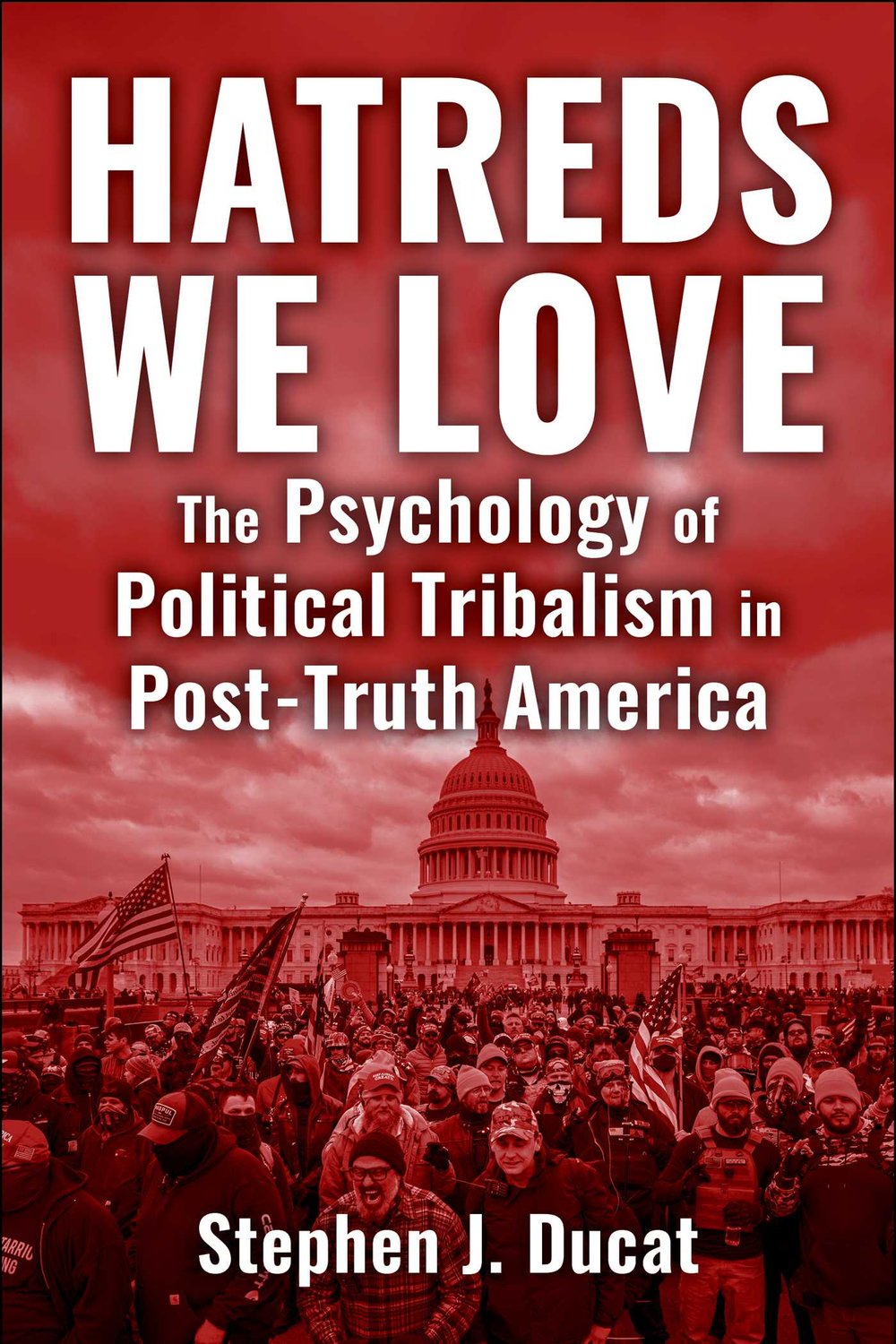Hatreds We Love
The Psychology of Political Tribalism in Post-Truth America

An in-depth study of the malignant power of group identity in contemporary politics, most notable on the MAGA Right, that explains the growing longing for autocratic rule, the rise of delusional thinking, and the increasing comfort with political violence.
Fueled by conspiracy thinking and a growing indifference to facts, some Americans, especially on the Right, are increasingly seeing their fellow citizens as threats that must be eliminated.
Hatreds We Love is an insightful psychological reading of our current political moment. It is grounded in the illuminating scholarship of social psychologists, psychoanalysts, anthropologists, neuroscientists, and historians. In addition, author Stephen J. Ducat draws on his own clinical experience, research, and values.
The book offers a thorough analysis of the powerful archaic emotions that animate MAGA neofascism’s zealous partisans. Donald Trump’s fortunes may fade in the coming months and years, but Trumpism will likely remain ascendant and be felt globally. For example, in December 2022, it was revealed that a right-wing coup attempt in Germany was, to some extent, modeled on America’s own post-election insurrection. Even as far back as the 1930s, German fascists looked to America as a blueprint for implementing race-based tribalism.
Hatreds We Love argues that today’s extremism is contiguous with the long history of American conservatism going back at least to the antebellum South. From this perspective, the worldview and actions of the GOP’s MAGA faction are the logical outcomes of the consistently expressed right-wing ethos of domination, xenophobia, and the “freedom” to harm. Hatreds We Love speaks to the causes and underlying dynamics of what is now one of the greatest threats to the viability of what remains of American democracy and global democratic governance more broadly: political tribalism.
In-group loyalty is such a powerful driver of political behavior that people will readily abandon their values, long-held moral principles, and even their lives. Ducat concludes by offering readers ideas they can readily use to craft new, more effective forms of pro-democratic political action. This analysis of partisan enmity could not be timelier.

Stephen J. Ducat is an author, political psychologist, psychoanalyst, and former psychology professor in the School of Humanities at New College of California, where he taught courses in political psychology, cross-cultural psychology, and psychohistory. From the beginning of his career as a psychologist and writer, he has been ceaselessly plagued by what drives people to support autocrats and persecute out-groups, even at the cost of their material self-interest. His history of publications reflects those long-standing concerns. For several years, the political psychology blog he wrote for HuffPost took up those questions from various perspectives, one of which was selected for the anthology Race in William Shakespeare’s Othello (Greenhaven Press, 2012). A version of another appeared among a collection of essays in River of Fire: Commons, Crisis, and the Imagination (Pumping Station, 2016), along with contributions by Mike Davis and Rebecca Solnit.
Ducat's last book, The Wimp Factor: Gender Gaps, Holy Wars, and the Politics of Anxious Masculinity, features wide-ranging essays on the psychology of public life. His doctorate is from the Wright Institute in Berkeley, California. He completed his psychoanalytic training at the Psychoanalytic Institute of Northern California and is a licensed psychologist in California and Oregon.
